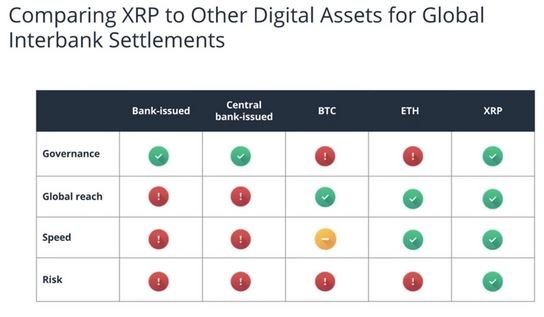
According to a stunning new survey that was just released, an annual income of at least $186,000 a year is required in order to feel financially secure in the United States today.
Unfortunately, only 6 percent of U.S. adults make that kind of money. So we have a major problem on our hands. The cost of living has become extremely painful, and are stressed out of their minds because their finances are such a mess. Since 2015, we have witnessed an economic shift of epic proportions. The ultra-wealthy have gotten a lot wealthier, the ranks of the poor have exploded, and the middle class has been absolutely eviscerated.
In this current economic environment, only a very small segment of the population is living comfortably. The following comes from CBS News…
Americans have a specific annual income in mind for what it would take to feel financially secure, according to a new survey from Bankrate. The magic number? $186,000 per year.
Currently, only 6% of U.S. adults make that amount or more, Bankrate said. The median family income falls between $51,500 and $86,000, according to the latest federal data. Achieving financial security means being able to pay your bills while having enough left over to make some discretionary purchases and put money away for the future, the personal finance site said.
When I was growing up, I thought that anyone that earned more than $100,000 a year was wealthy.
But now it takes an income about five times that size in order to be considered “wealthy”…
Americans have an even higher yardstick for feeling rich. The survey found they believe they would need to earn $520,000 a year to qualify as wealthy (July, 2024) — up from their $483,000 response during the same survey just a year ago in June, 2023.
Much of the population is trying as hard as they can, but they will never make the kind of money that they would like to make.
Meanwhile, the cost of living just keeps going higher and higher and higher.
As a result, the percentage of Americans that admit that they are experiencing financial stress just continues to go up…
Many inflation-weary consumers continue to experience financial stress, with a new Federal Reserve Bank of Philadelphia survey finding that 35% of Americans are worried about making ends meet, up from 29% a year earlier.
That gap between what the typical American earns and what they aspire to earn means “Americans have their eyes set on this high income, and they think they need to make more money even if they know it’s unrealistic they’ll never make that amount,” Sarah Foster, an analyst at Bankrate, told CBS MoneyWatch.
At this point, even many that are considered to be in “upper-income groups” feel forced to take on extra jobs just to make ends meet…
Americans in upper-income groups are concerned about their ability to pay bills, with more than 15 percent of this demographic taking up additional jobs over the past year, according to a survey by the Federal Reserve Bank of Philadelphia.
As of July 2024, 32.5 percent of respondents earning over $150,000 annually were worried about making ends meet over the next six months, up from 21.7 percent in April of last year, the July survey by the Federal Reserve survey showed.
This percentage is higher than for those in the income groups of $100,000 to $149,999, $70,000 to $99,999, and $40,000 to $69,999. Only individuals who earned less than $40,000, the lowest income group, were more worried than the $150,000-plus group.
I have never seen numbers like this before.
People are feeling so much anxiety about their finances, and that helps to explain why economic issues are playing such a prominent role in this election cycle.
Some Americans are trying to make ends meet by cutting back anywhere that they can.
For example, the following comes from an NPR article about how Americans are cutting back on charitable giving…
Robert Lang, a longtime cabinetmaker in Cincinnati, used to feel good about giving money to less-fortunate people. These days, however, he’s being forced to be less generous.
“I’m no great humanitarian,” says Lang. “But I feel really good if I can give a homeless guy 20 bucks. And we can’t do that anymore.”
The reason? Rising prices, which have forced Lang to dial back his giving as the 69-year-old tries to make ends meet with Social Security benefits and a part-time job with a furniture-making journal.
When times get tough, people become less generous.
I wish that wasn’t true, but that is just the way that it is.
So what will happen when economic conditions become extremely harsh?
BCA Research chief global strategist Peter Berezin is warning that another recession is coming and that stock prices could soon fall by 30 percent…
There may be trouble looming on the horizon for the U.S. stock market, according to BCA Research.
In a note to clients last week (July 18, 2024), BCA Research chief global strategist Peter Berezin warned that, contrary to popular belief, the economy will fall into a recession either during the Election (November, 2024) in early 2025.
Should that happen, the S&P 500 could tumble to 3,750, which marks a 30% drop from current levels.
Will he be proven correct?
I don’t know.
But I do know that it feels like a recession has already arrived to many Americans.
Every day, we get even more bad economic news. For instance, Fox Business just published an article about how major drug store chains are in the process of closing down locations from coast to coast…
Just this week, Walgreens announced that it would close a “significant” number of under performing stores across the U.S. due to ongoing challenges with profitability and declining margins.
Earlier this month, Rite Aid announced that 27 locations in Michigan and Ohio have been added to the growing number of stores it plans to close while it restructures under Chapter 11 bankruptcy.
In large cities all over the nation, thousands upon thousands of commercial properties are now sitting empty.
Of course this is just the start.
As the globe is rocked by one chaotic crisis after another, things will get a whole lot worse.
A “perfect storm” is now upon us, and most people have absolutely no idea how harsh conditions around us will soon become…


